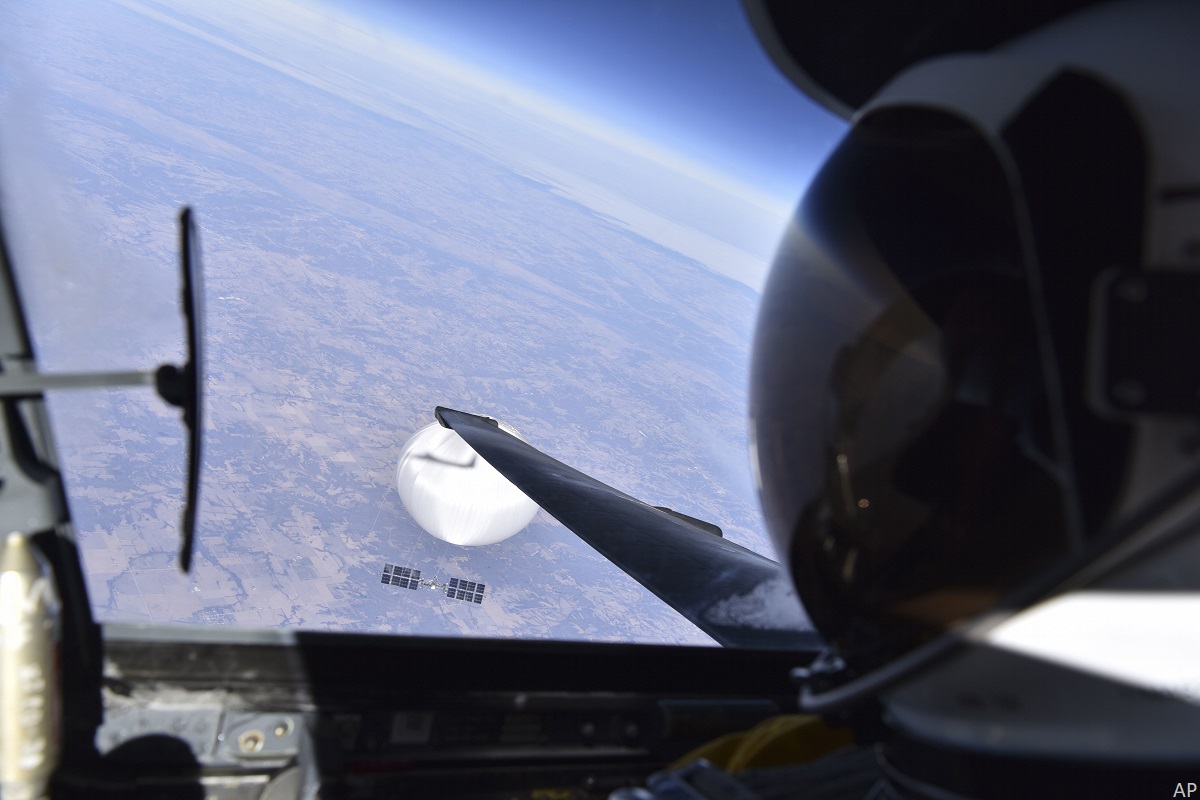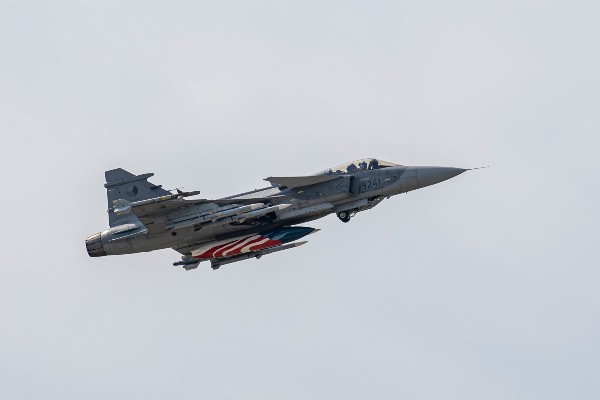
The recent aerial invasion by the Chinese spy balloon of U.S. and Canadian airspaces triggered a sense of panic and a rise in threat perception among the armed forces of both countries. While the balloon was ultimately shot down by U.S. fighter jets, the incident served to highlight the growing geopolitical instability and its potential military fallout.
Such an environment typically drives countries to remain on high alert, secure higher defence funding and bulk up their military apparatus to meet any challenges to their sovereignty and territorial integrity. The biggest beneficiaries of higher military spending are defence contractors that have cutting-edge weaponry and systems.
The following arms manufacturers are well positioned to benefit from the growing demand for their wares and technology as the U.S. and its allies bulk up their defence capabilities against growing Russian and Chinese belligerence.
The world’s largest defence contractor, Lockheed Martin (LMT) operates multiple businesses. Its largest segment, Aeronautics, derives upwards of two-thirds of its revenue from the F-35. The company’s other segments include rotary & mission systems (the Sikorsky helicopter business), missiles and fire control, and space systems (satellites).
It was Lockheed Martin’s F-22 Raptors that brought down the Chinese spy balloon and ended the high-altitude drama through military intervention. Over the next few days, more F-22s took to the skies to take out other unidentified flying objects in North American air space.
It’s not hard to see why LM is one of the key beneficiaries of the U.S. defence budget. “Lockheed derived more than 70% of its US$66 billion in 2022 sales servicing contracts from the U.S. Department of Defense, the largest military budget on Earth,” says a Morningstar equity report.
The firm stands to benefit from the largest defence procurement program ever awarded (F-35) through the 2060s. “As a bet on the defence industry, Lockheed is hard to beat,” says Morningstar equity analyst Nicolas Owens,” noting that the company and its investors “benefit from the sheer scale of its tens of billions of dollars of contracts that provide defined, decades-long revenue and profit streams.”
Wide moat Lockheed is poised to benefit from the recent ramp of U.S. defence spending, driven in the short term by orders to supply arms to Ukraine and longer term by modernization of the military's ability to counter aggression from China and Russia, says Owens, who puts the stock’s fair value at US$437.
Diversified aerospace and defence manufacturing heavyweight, Northrop Grumman (NOC) provides aeronautics, defence, mission, and space systems. The company’s aerospace segment creates the fuselage for the massive F-35 program and produces autonomous and piloted aircraft. Its other businesses comprise defence systems (artillery and missile ammunition), mission systems (radar, navigation, and communication systems), and space systems (satellites, space structures, and long-range missiles).
“Northrop Grumman has a strong focus on producing hardware for classified programs and currently enjoys exposure to some hefty military development programs that are early in their life cycle,” says a Morningstar equity report.
The defence budget allocation is a hard-to-predict political process, which tilts the balance in favour of companies with tangible growth profiles through a steady stream of multi-decade contracts.
The tide of defence budgets is closely tied to a nation's wealth and its perception of danger. Recently, both have seen a spike in the U.S. and among many of its allies. Northrup and its peers are well positioned to benefit from this scenario as geopolitical volatility has been driving military budgets higher.
“The three biggest stock-specific growth opportunities we see for Northrop are the Ground Based Strategic Deterrent, the further militarization of space, and the continued development and eventual manufacture of the B-21 bomber,” says Owens, who recently raised the stock’s fair value to US$423 from US$368, prompted by accelerated sales in the fourth quarter of 2022.
The company enjoys a dominant position in rocket motors, which are in high demand as more companies send satellites to low earth orbit as they race to build out space-based broadband services.
Raytheon Technologies (RTX) is a diversified aerospace and defence industrial company that operates in four segments: Collins Aerospace (diversified aerospace supplier), Pratt & Whitney (engine manufacturer), Raytheon Intelligence & Space (sensors, hardware, and communications technology), and Raytheon Missiles & Defence (a defence prime contractor).
A powerhouse in the commercial aerospace and defence contracting industries, the company is “unique in its relatively even split between commercial and defence revenue, where most other firms in the industry are heavily skewed one way or the other,” says a Morningstar equity report.
Last year was a mixed bag for the company's defence-related businesses, which were held back by lingering supply issues hampering productivity in some areas. The fourth quarter saw Raytheon Intelligence & Space and Raytheon Missiles & Defence post a year-on-year revenue decline of 5% and revenue growth of 6%, respectively.
That said, “Raytheon's defence backlog shows healthy growth in areas important to future defence spending, so we still see the current operating conditions as likely delaying, not destroying, opportunity for the company,” assures Owens, who appraises the stock’s fair value to be US$106, and forecasts the firm's military revenue to grow at a 3.5% CAGR through 2025.
More specifically, the growth will be driven by F135 engine production at Pratt, aggregate U.S. military spending at Collins, missiles and missile defence in integrated defence and missile systems, and the militarization of space in intelligence, space and airborne systems, Owens notes.
Raytheon Technologies’ wide moat stems from difficult-to-replicate, highly integrated, mission-critical products that prevent largely risk-averse clients from switching suppliers.






















